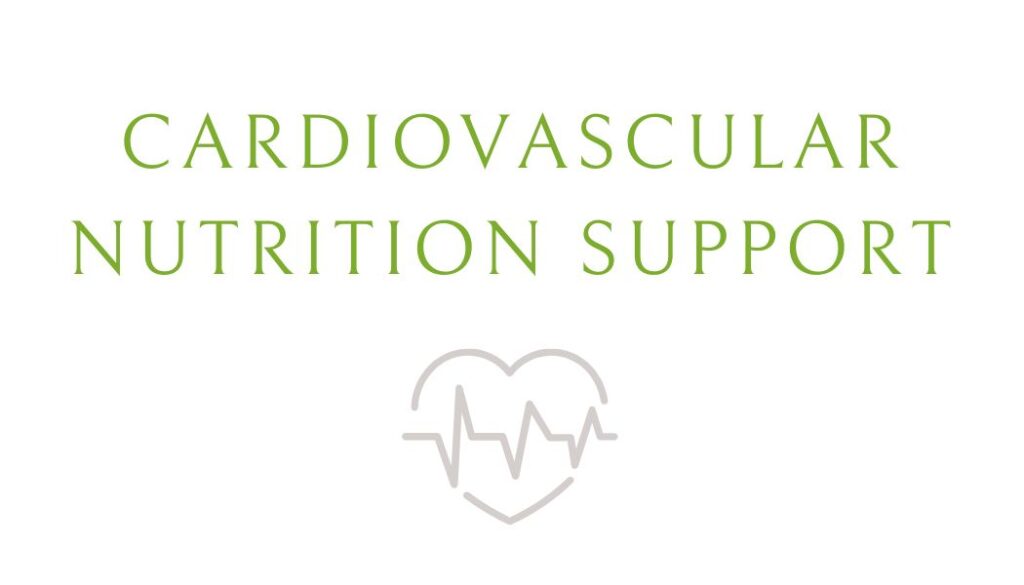Our heart is such an amazing organ! It pumps blood and oxygen through our arteries throughout the body. But like everything else, food impacts our bodies and our heart! We want to make sure we eat a diet that helps keep us reach out heart health goals. But a diet high in saturated fat, artificial trans fat and cholesterol promotes decreased heart health. To counteract this, it is important to eat a heart healthy diet in addition to other lifestyle changes. If you’re wondering how to do this, read below!
Here are the 5 things to focus on eating for heart health:
- Choosing the right type and amount of fat
- Limiting your salt intake
- Increasing dietary fiber intake
- Limiting added sugar
- Choosing lean cuts of meat
Types and Amount of Fat
Monounsaturated Fat
Monounsaturated fats have a single chemical bond. Many monounsaturated fats are liquid at room temperature, for example: extra virgin olive oil and avocado oil.
Studies have shown that replacing a diet high in saturated fat with a diet high in monounsaturated fats can help decrease LDL “bad” cholesterol, and monounsaturated fat has also been linked to lower blood pressure.
Polyunsaturated Fat
On the other hand, polyunsaturated fats are made up of multiple (poly) chemical bonds. These types of fat provide our bodies with omega-3 and omega-6 fatty acids that are essential for health, but not made by the body.
Omega-3 fatty acids have been linked to better heart health and eye health, along with a lower risk of some other conditions. To get more omega-3s in your diet, the American Heart Association (AHA) recommends eating fatty fish at least twice a week.
Saturated Fat
Typically solid at room temperature, like butter — saturated fats have been linked to health issues including heart disease and weight gain.
Saturated fat is found in animal products, but the good news is it’s not necessary to avoid saturated fat altogether. Like most things, it’s okay to eat saturated fats in moderation. The AHA recommends limiting saturated fat to 5 or 6 percent of the total calories you eat daily.
Trans Fat
The least healthy of the group, trans fats are categorized into 2 categories: naturally from animals, and artificial fats that are manufactured by adding hydrogen to liquid vegetable oils.
Artificial trans fats have no health benefits — they’re known to raise LDL cholesterol, lower HDL cholesterol, and increase your risk of heart disease, stroke, and type 2 diabetes.
Read more about the types of fat in our other blog post!
Manage your Salt Intake
Processed and/or packaged foods tend to be higher in salt. If you eat more foods and snacks that come out of a package, frozen meals or in the middle aisles of the grocery store, then your diet is most likely high in added salt. In addition, cooking with salt or salt-containing seasonings, or adding salt to your foods before eating, causes total salt intake to spike.
For good heart health, it is recommended that you consume no more than 2,300 mg (about 1 teaspoon) of salt each day. This includes the salt you add to your foods and the sodium content of the food itself. When cooking or seasoning your foods, skip the salt and instead choose Mrs. Dash, pepper, garlic powder, onion powder, and/or herbs and spices like rosemary, oregano, cinnamon, cumin, and turmeric. If you do want to add some salt, choose Himalayan pink salt or Celtic sea salt!
Increasing Dietary Fiber
Fiber is a carbohydrate that your body can’t break down, so it passes through the body undigested. It comes in two varieties: insoluble and soluble.
Insoluble fiber, which does not dissolve in water, also has a number of benefits. It helps food move through your digestive system, promoting regularity and preventing constipation. It’s found in whole grains, whole wheat cereals, and vegetables like carrots, celery, and tomatoes.
Soluble fiber dissolves in water to form a gel-like material. The benefits of this type of fiber include lower blood cholesterol and lower glucose levels. It’s is found in grains, fruits, and vegetables. Soluble fiber sources include barley, oatmeal, beans, nuts, and fruits like apples, berries, citrus fruits, and pears.
Fiber’s role in preventing heart disease is thought to stem from its ability to lower both blood pressure and cholesterol. It also fills you up, which helps you eat less and in turn, lose weight. Look for brands with at least 6 grams of fiber per serving.
Limiting Added Sugar
Sugars in your diet can be naturally occurring or added to your food. Fruit and milk have naturally occurring sugars in the forms of fructose and lactose. Don’t be afraid of fruit and dairy as they have naturally occurring fiber and protein. Added sugars come in the form of table sugar and high fructose corn syrup. Ultra-processed foods tend to have a lot of added sugar (think packaged products!)
Limiting added sugar intake can help lower blood pressure by increasing dilation of blood vessels. The AHA recommends to limit intake of added sugars to 6 teaspoons/day for women and 9 teaspoons/day for men.
Choosing Lean Cuts of Meat
The AHA recommends choosing healthy sources of protein, mostly from plant sources, with the addition of some animal-based products as well. Fish, shellfish and grassfed beef are good sources of protein. The omega-3 fatty acids actually have heart health benefits, including reducing triglycerides, blood pressure and reducing inflammation.
Plant foods that contain protein are high in fiber, vitamins, minerals and other important nutrients are beneficial for heart health eating. There are many types of plant proteins in the form of beans – pinto, kidney, chickpeas, edamame– and they’re all good for heart health! If you eat poultry, pork, beef or other meats, choose a leaner cut of meat, skinless poultry, and unprocessed forms. Also, watch portion sizes!
One portion of cooked meat is three ounces. Below is what 3 oz portions look like:
- a piece of meat about the size of a deck of cards
- a small chicken drumstick or thigh
- 3/4 cup of flaked fish
- 2 thin slices of lean roast beef
Free 3-Day Meal Plan that Encourages Heart Healthy Eating
Adding heart healthy foods to your diet can help not only make you feel better but can help you live a longer, healthier life! Check out our FREE 3-day meal planner for meal ideas that incorporate heart healthy eating and foods like whole-grains, colorful fruits and vegetables, and lean proteins.

How We Can Help
Making a change, no matter how small, is hard! This is especially true when you don’t know where to start. At Anderson’s Nutrition, a Registered Dietitian can give you the education, support, supplement recommendations and guidance you need to keep eating for heart health in good standing! We can create an individualized nutrition plan that serves as your guide, keeps you accountable, and leads to improved health outcomes. Not only can we provide you with nutrition guidance, we can also help you reach your exercise goals as well!
Ready to get started? Contact a dietitian today!

Disclosure:
Some of our pages contain affiliate links that Anderson’s Nutrition may receive a commission from, at no extra cost to you. We only promote food and wellness stocking stuffers that we have used & verified, finding helpful for our clients and friends. As an Amazon Associate, we earn from qualifying purchases. Anderson’s Nutrition is a participant in the Amazon Services LLC Associates Program, an affiliate advertising program designed to provide a means for sites to earn advertising fees by advertising and linking to Amazon.com.



